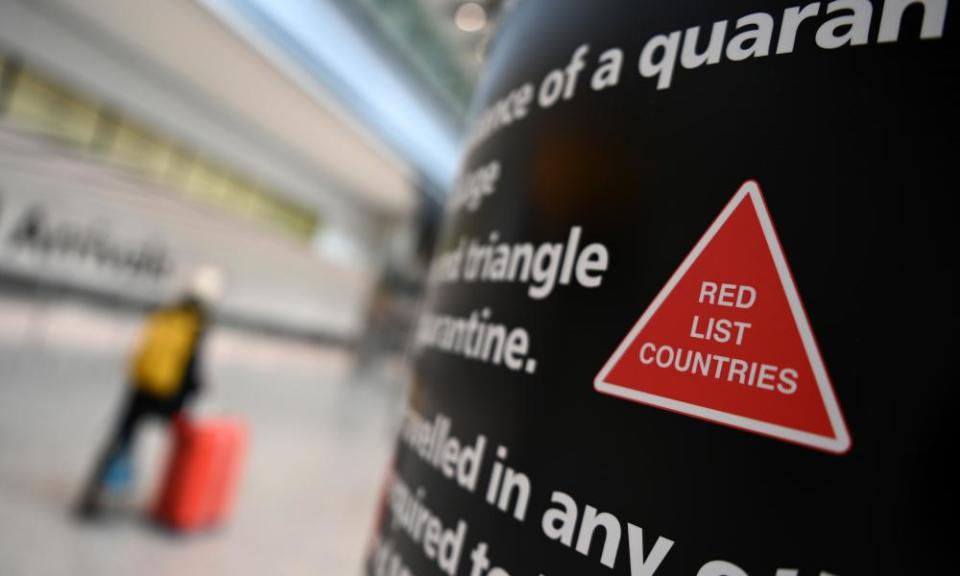Ministers to cut ‘red list’ countries by up to half to simplify England’s travel rules

Ministers are to slash the number of “red list” countries by up to half as part of plans to simplify England’s rules for international travel, with sources claiming it would incentivise vaccination.
The traffic light system will be overhauled, with the amber tier removed so there is a clearer distinction between “go” and “no go” destinations.
Those who have been double-jabbed are likely to be able to escape quarantine – or the need for costly PCR testing – upon arrival, while unvaccinated passengers will still face those hurdles.
“It will be made much simpler, particularly for those who are double-vaxxed,” a government source said.
It is understood the new red list is likely to be focused on countries where there is a significant concern about Covid variants.
Government insiders said the ultimate aim was to simplify the rules, after Labour called for the amber list to be scrapped in order to clarify guidance on which destinations are relatively safe and which are not.
However, they also admitted it would have the effect of providing a greater incentive to the 10% of those eligible to be vaccinated who have not yet had their first jab, given the extra money people will have to fork out for a PCR test instead of a cheaper lateral flow one, as well as avoiding the hassle of having to self-isolate.
Related: Europe’s distrust of the traffic light system threatens UK holidays
For those returning from red-list countries, quarantine hotels are expected to remain in place. However, the number of destinations on the red list is expected to be reduced significantly, with a senior government source indicating it could be as much as half.
Ministers will gather on Friday morning to sign off the plans and an announcement is expected later that afternoon. The process usually takes place every three weeks on a Thursday or Wednesday, but it is understood to have been delayed due to the reshuffle.
The decision will also be watched closely to see whether the composition of so-called “dove” and “hawk” cabinet ministers – those who are more cautious versus others who want a speedier relaxing of restrictions – has changed with the appointment of Liz Truss as foreign secretary and the bringing into cabinet of Nadhim Zahawi, Anne-Marie Trevelyan and Nadine Dorries.
Currently, scientists working at the Joint Biosecurity Centre suggest changes to the three lists depending on each country’s Covid case, vaccine and variant levels, though ministers vet these and make the ultimate decisions. They have been accused previously by data experts of not being transparent enough about what information they use and being inconsistent in the methodology behind triggering a country’s move from one list to another.
Coronavirus data analyst Tim White said predicting which countries would be moved was a “travel lottery” and that “no one can be sure”. But he added: “The data firmly support Turkey being removed, as it has no threat of variants and a lot of genomic sequencing.”
While the red, amber and green lists are looked at regularly, there were three review points designed to look at whether wholesale change of the current travel rules were needed. The last – 31 July – saw the dropping of the quarantine requirement for double-vaccinated people returning from amber list countries. The next is scheduled for 1 October.
Some of those who have been double-jabbed outside the UK will also be hopeful that the government makes good on its pledge for people who are still registered with a GP to be able to have this added to their NHS vaccine record.
Nadhim Zahawi, then vaccines minister and now education secretary, pledged in July: “By the end of this month, UK nationals who have been vaccinated overseas will be able to talk to their GP, go through what vaccine they have had, and have it registered with the NHS that they have been vaccinated.”

 Yahoo News
Yahoo News 